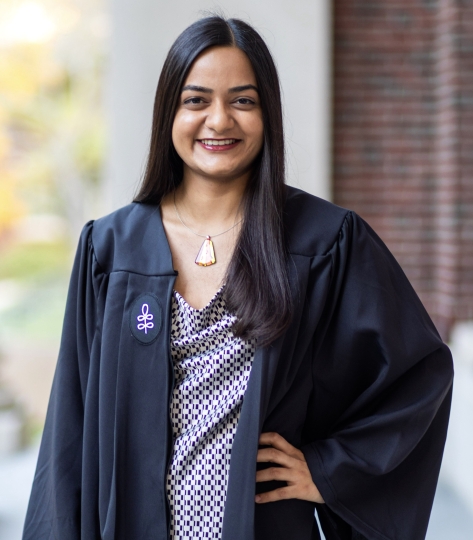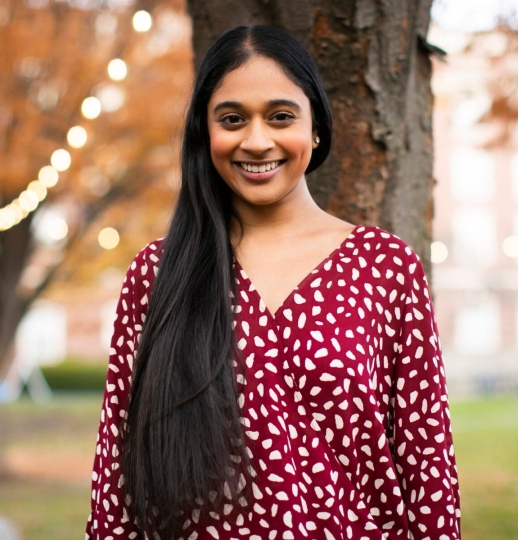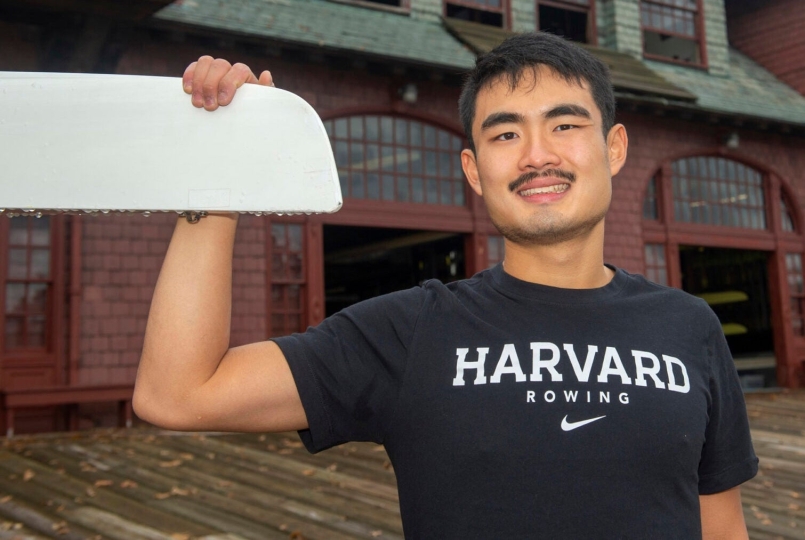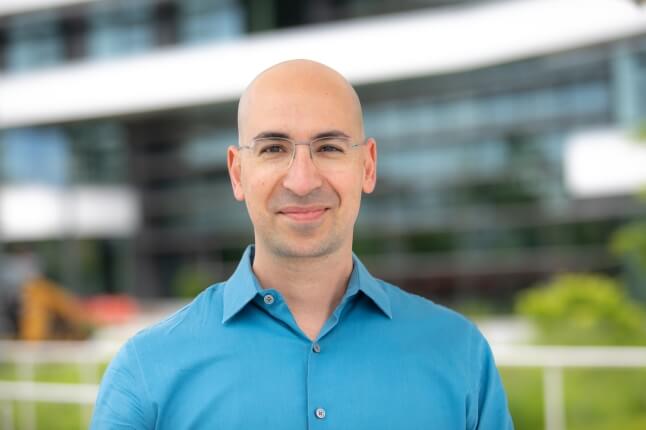News
The Undergraduate Technology Innovation Fellows Program shows students how their academic interests can intersect with business and the global economy.
Maya Burhanpurkar (Credit: Maya Burhanpurkar)
Since 2019, the program, jointly organized by the Harvard John A. Paulson School of Engineering and Applied Sciences (SEAS), Harvard Business School (HBS) and the Faculty of Arts & Sciences, and supported by the Roberts Family Foundation, has brought together Harvard College sophomores and juniors, many of whom are already accomplished entrepreneurs and innovators. This year’s cohort has a special distinction: among the seven Harvard students named 2021 Rhodes Scholars, three were Technology Innovation Fellows.
Rhodes Scholars Trisha Prabhu, Maya Burhanpurkar and Michael Cheng will continue their education next year at the University of Oxford in England. They join SEAS undergraduate alumni Neil Band, A.B. ‘20, on the list of Tech Fellows to be named Rhodes Scholars.
“I just remember feeling a sense of really overwhelming gratitude, because in my case it really took a global virtual village to get the Rhodes Scholarship,” said Burhanpurkar, who is concentrating in physics with a secondary in computer science.
“It’s going to be an incredible experience,” added Cheng, who’s concentrating in history and mathematics and is in a concurrent master’s program in computer science at SEAS.
The intersection of business and technology drew all three Rhodes Scholars to the Tech Fellows program. While still in high school in her home country of Canada, Burhanpurkar began development of an autonomous, self-driving wheelchair that maneuvers using artificial intelligence and sensor technology.
She went on to found Adventus Robotics as a junior at Harvard, as Burhanpurkar and her team worked to expand the technology’s applications to automated processes in hospitals.
Her work with Adventus won the McKinley Family Grant for Innovation and Entrepreneurial Leadership in Commercial Enterprise Gold Medal Grant during the 2020 Harvard i3 Innovation Challenge.
“The reason that I was working on the wheelchair was really the people that it was going to benefit,” Burhanpurkar said. “But at the same time, I was thinking about how we make the cost as low as possible. Well, then you have to start making economic arguments with manufacturers. It’s very much a balancing act.”
Trisha Prabhu (Credit: Stephanie Mitchell/Harvard University)
Prabhu, meanwhile, programmed the mobile application ReThink while still in high school in Illinois. The app aims to reduce cyberbullying by scanning text messages, then prompting the sender to consider rephrasing the message.
Prabhu was just 16 when she went on “Shark Tank,” ABC’s long-running entrepreneurship reality show, and convinced Dallas Mavericks owner Mark Cuban and QVC inventor Lori Greiner to offer a combined $100,000 investment the company.
Rethink received the McKinley Family Grant for Entrepreneurial Leadership in a Social Enterprise at the 2019 i3 Innovation Challenge.
“I come from a background in tech and business,” said Prabhu, a senior concentrating in Tech Science in Harvard’s Undergraduate Program in Government. “I had always seen both realms and two worlds I was interested in, not necessarily two worlds that could be one and the same. The Tech Fellows Program took these two worlds that I’d always been interested in and put them together.”
Tech Fellows can take two HBS courses that wouldn’t otherwise be available to undergraduates.
“I got to take ‘Strategy and Technology,’” said Prabhu. “I got to think about some of the economic structures at the heart of the way technology is created and sold. Getting a sense of those structures, learning about those concepts, was huge for me in developing my own positions on a lot of these important issues, but also in starting to think about what I want to do for the rest of my life.”
At Oxford, Prabhu plans to study a combination of data science, social science of the internet and public policy. She got to explore many of these subjects through the workshops offered in the Tech Fellows Program.
“We talk about everything from business fundamentals to technology applications in interesting settings,” Prabhu said. “I remember there was once a workshop where we talked about technology on the cloud, and that’s a really interesting application that has implications for things like privacy, which is an issue I’m very interested in. It was very, very cool to hear from these experts that normally you would not get access to.”
The Rhodes Scholarship typically lasts two years with a possibility for a third. Oxford’s numerous one-year master’s degrees means the trio could pursue several of their academic interests.
Michael Cheng (Credit: Jon Chase/Harvard University)
Cheng plans to pursue a doctorate in engineering science with a focus on renewable energy technology and policy.
“The UK is actually undergoing] one of the fastest renewable energy transitions in Europe and North America, which is interesting because they were the birthplace of coal, or at least that’s their popular perception,” Cheng said. “They’re going to phase out all coal-fired power by 2024, and so I’m interested in seeing firsthand the challenges and opportunities presented by their relatively rapid transition.”
Cheng also got to pursue his interest in energy and technology through the Tech Fellows and HBS.
“I took a fantastic course this semester, “Global Energy and Transition,” which is basically the business of energy,” Cheng said. “We got to hear from CEOs and policy makers, both from oil companies and renewable energy companies. It was a really fascinating, discussion-based course.”
The Tech Fellows program typically lasts one year, including the one-week HBS Startup Bootcamp program in January.
Along with knowledge, the program also creates a tightly-knit community, including the trio that will get to keep working together next year at Oxford.
“I just feel extraordinarily blessed and immensely grateful,” Prabhu said. “It’s a milestone like this that makes you think back and realize all of the people throughout your life, and certainly during my four years at Harvard, that have been pivotal in not just giving me the skills, but the confidence to go after an opportunity like this.”
Topics: Academics, Awards, Computer Science, Undergraduate Student Profile
Cutting-edge science delivered direct to your inbox.
Join the Harvard SEAS mailing list.
Press Contact
Matt Goisman | mgoisman@g.harvard.edu





